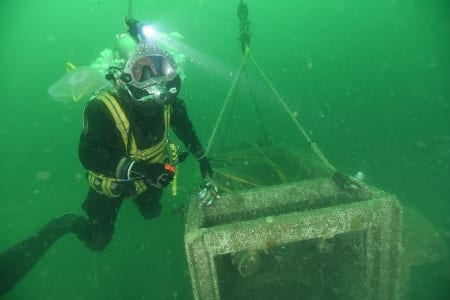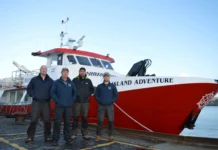Ocean scientists from all over Europe gathered at Galway’s Marine Institute this week to promote the importance of ocean observatories.
Over 70 of the top marine scientists in Europe came to the second general assembly of the Jerico-NEXT Research Project.
They talked about how important it is for marine research to have an array of ocean observatory systems providing continuous, high-quality data from the oceans.
The Marine Institute operates the Smart Bay Coastal Observatory 5km off the coast of Spiddal that gathers constant data from Galway Bay.
Just this summer the Smart Bay observatory was brought up to cleaned off and fitted with next-gen sensors and cameras to improve its functionality.
Jerico-NEXT aims to improve cooperation among European coastal observatories through the EU’s European Marine Research Infrastructure initiatives.
Mick Gillooly, Director of Ocean Science and Information Services at the Marine Institue said recent technological advances have enabled them to learn more about, “The complexity of the coastal ocean systems.”
“This has been extremely important in realising that our countries face similar environmental challenges and are reliant upon the best available science and knowledge informing decisions affecting our ocean.”
As an island nation with a high concentration of marine scientists, Ireland is positioned to play a powerful role in advancing the understanding of our oceans.
“Such an integration of ideas requires a range of marine science specialists, as well as experts in technology and ICT working together to build new technological developments allowing for continuous monitoring of a larger set of key oceanic parameters,” explained Paul Gaughan, Marine Institute.
The Marine Institute has been involved in the Jerico-NEXT project since its inception in 2011.
In addition to providing data to researchers at the Marin Institute, the Smart Bay observatory is also used by European marine technology developers to trial new sensors and equipment.
The oceans, and particularly coastal areas like Galway Bay, are some of the most dynamic environments in nature, with resources we don’t yet understand.
Research into them could deliver advancements in medicine and chemistry that couldn’t be uncovered anywhere else on the planet.













